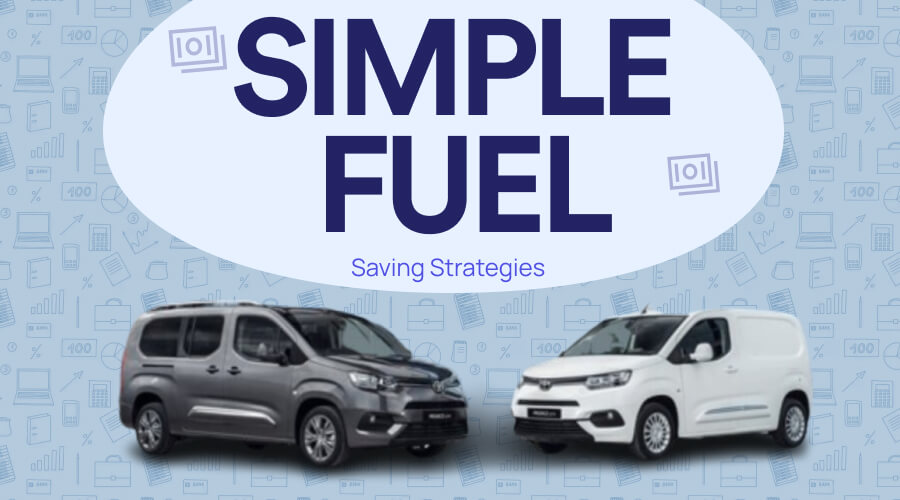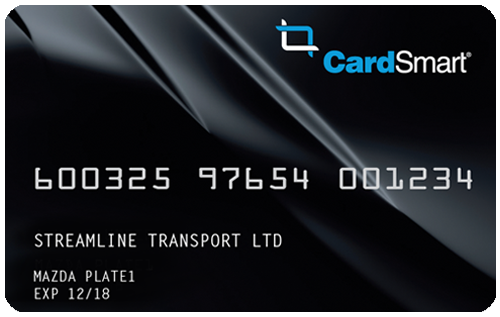Fuel prices in New Zealand are rising, making it harder for NZ businesses to plan and budget for fuel costs. However, by making a few simple switches, you can cut your fuel costs and boost your business savings. This article covers some simple fuel-saving strategies – from using fuel-finding apps to signing up for a fuel card program – to help your business reduce petrol costs and stay on top of the fuel game.
Key topics covered
- Understanding NZ fuel prices
- Technology for fuel savings
- Additional fuel savings tips
- Finding the right fuel card for your business
How Are NZ Fuel Prices Set?
How does fuel pricing in NZ work? And why are some cities or even suburbs more expensive than others?
Well, fuel prices change due to a few key factors, including
- Global oil prices: Prices go up and down based on things like global demand, supply issues, and events around the world. When oil prices rise, so does the price at the pump.
- Taxes and levies: Part of the cost per litre includes taxes, which help fund transport projects across the country. However, they also add to the overall price.
- Regional price differences: Fuel can be cheaper or more expensive depending on where you are. Places closer to refineries or with more competing petrol stations often have lower prices.
Knowing these factors can help you understand why prices vary (and where you might find cheaper fuel on any given day).
Tech to Help You to Find Cheaper Fuel
Technology makes it easier than ever to save on fuel costs, with apps and software that help you find the best prices and cut down on unnecessary fuel use.
Gaspy App
Start with apps like Gaspy, a New Zealand app for showing current fuel prices at stations near you. Just open the app before filling up, and you can quickly see if a nearby station has cheaper fuel, helping you save without much effort.
Fleet Management Software
For businesses with multiple vehicles, fleet management software is also worth a look. Prices start as low as NZ $4 per vehicle per month. Fleet management software tracks fuel usage, monitors driving habits, and highlights ways to reduce fuel waste. Some programs can even send alerts if fuel is being used inefficiently, making it easy to make smart, money-saving adjustments across your fleet.
Some popular fleet management software brands in NZ include
- BONNET For Fleet
- Navman Teletrac
- EROAD
- Fleetpin
- Fleetio
- Verizon Connect
Simple Fueling Tips to Save Money
Making a few small changes in how and when you fuel up can lead to some solid savings over time.
- Fill up at the right time: Some stations offer discounts on certain days, so it’s worth keeping an eye out for these deals. Mid-week or “discount days” often have the best prices, depending on your area. However, make sure you do your due diligence before buying on “discount days” – sometimes you’ll find you’re not saving as much as you think you are. Read our article on whether your business is saving with fuel discount days.
- Avoid premium fuel (unless it’s required): Premium fuel costs more, but most vehicles run just as well on regular unleaded. Double-check your vehicle manual to be sure, but if premium isn’t essential, you’re likely paying extra for no reason.
- Bulk fuel buying: If your business uses a lot of fuel, consider bulk purchasing. Some suppliers offer deals when you buy fuel in larger amounts or pre-purchase at a set price. This approach can be especially useful if you’re managing a fleet, as it can lock in savings over time.

Maintaining Your Vehicles for Better Fuel Efficiency
Keeping your fleet in good shape can have a big impact on fuel costs. A few basic maintenance steps can help engines run more smoothly and use less fuel.
Regular servicing is essential – a well-tuned engine operates more efficiently and uses less fuel. Routine check-ups keep everything from engines to belts and hoses in top shape, so your vehicle doesn’t have to work as hard.
Don’t forget about tyre pressure. Low tyre pressure adds friction, which makes the engine work overtime and burn more fuel. Checking tyres regularly and keeping them at the recommended pressure is a quick way to improve fuel efficiency.
Another easy fix is replacing air filters on schedule. When air filters are clogged, engines can’t “breathe” as easily, which reduces efficiency. Swapping out dirty filters ensures your engine runs at its best, saving you fuel over time.
These small maintenance habits may seem minor, but together, they can noticeably lower your monthly fuel costs.
Encourage Fuel-Saving Driving Habits
Adjusting driving habits is an easy way to cut fuel costs and keep drivers safer on the road. There are even programs you can sign your employees up for that teach them how to drive more safely and efficiently, like the Safe and Fuel Efficient Driving (SAFED NZ) Programme for truck and bus drivers, or HW Richardson Group SAFED Training for everyday drivers.
In saying there, here are some simple tips your drivers can implement straight away to start cutting down on fuel costs
- Encourage smooth acceleration and braking. Quick starts and hard stops burn more fuel, so easing into speed and braking gently can make a real difference.
- Keeping to steady, moderate speeds. Most vehicles are more fuel-efficient at these speeds, while driving too fast can use up fuel much faster. Remind drivers to keep it steady to stretch each tank further.
- Reduce idling time. Idling for long periods wastes fuel, so if you’re waiting for more than a minute, it’s often better to turn off the engine. Many newer vehicles even have ‘stop-start’ technology to handle this automatically.
Consider Alternative Fuel Options
Switching to alternative fuels is a big step, but some businesses are seeing real savings by switching to electric and hybrid cars.
Electric and hybrid cars are also becoming more affordable, practical options, especially for businesses that drive a lot in cities. EVs are cheaper to run and require less maintenance, and with charging stations increasing across NZ, they’re easier to use than ever. Even introducing one or two electric or hybrid vehicles to your fleet can help reduce fuel costs in the long term.
Read more: Is 2025 the year to switch your fleet to EVs?
Biofuels are another potential option. These fuels are made from plants or organic waste, offering a cleaner alternative to regular petrol. They’re not available everywhere yet, but they’re becoming more common in New Zealand.
Fuel Card Programs: A Simple Way to Save More on Fuel
Fuel card programs are one of the easiest ways for New Zealand businesses to save on fuel without having to overhaul how they operate. Fuel cards are designed to offer discounts, perks, and even spending insights, all of which can lead to significant savings over time.
Finding the Right Fuel Card for Your Business
Fuel card options in New Zealand come with a range of different benefits, so it’s worth taking the time to find one that aligns with your business needs. Here are a few things to consider when comparing fuel card options:
- Discounts and rewards: Many fuel cards offer discounts on fuel purchases, but these can vary by station or card provider. Some cards give consistent cents-per-litre discounts, while others offer percentage-based savings or cashback rewards. Look at the stations your business frequents most and find a card that offers the best deal at those locations.
- Tracking and reporting tools: Fuel cards often include tracking tools that let you monitor fuel use and expenses for each card in your fleet. This can help you see how much fuel is being used, where it’s being purchased, and even track individual driver habits. These reports can be valuable in finding opportunities to reduce fuel costs further.
- Additional perks: Some cards go beyond discounts and tracking, offering perks like points programs, access to roadside assistance, or savings on maintenance services. If your business needs extra support, look for a card that bundles these additional benefits.
Read more: The best fuel cards for SMEs in NZ
Getting the Most Out of Your Fuel Card
Once you have your fuel card, you’ll want to make the most of it. Here are a few ways to ensure you’re getting the best value from your program:
- Stick to destinations with the best deals: Many fuel cards are tied to specific brands or stations, so make sure drivers fill up at these locations to get the biggest discounts.
- Review usage reports regularly: If your card provides usage reports, review them regularly to see where and how often fuel is being bought. This can reveal trends, like drivers using more expensive stations or buying premium fuel unnecessarily. Small changes based on these reports can lead to big savings.
- Set spending limits: Many fuel cards let you set spending limits. You can control how much each vehicle can spend or restrict purchases to certain stations, which helps you stay within budget – especially useful if you have a larger fleet.
- Track rewards or loyalty points: If your fuel card has a rewards program, keep an eye on points and use them when they’ve built up. Points can often be redeemed for fuel, maintenance, or other business expenses, adding extra savings without extra effort.
Why Fuel Cards Are Worth It
Fuel cards are one of the simplest ways to keep costs down while also giving you greater control over your fuel budget. By choosing a card that fits your needs and making strategic use of its features, you can achieve steady savings on fuel that add up significantly over time. Fuel card programs don’t just offer discounts – they help you understand, manage, and minimise fuel expenses in a way that works for your business. With the right card, you’re not only saving on each fill-up, but you’re also gathering valuable data that helps you make smart, cost-effective choices in the long run.
Find the Right Fuel Card for Your Business
Ready to start saving on fuel? Find a fuel card that suits your business needs and budget. Checking your eligibility is quick and easy with comparefuelcards.co.nz. Explore available options and see which card offers the best discounts, perks, and controls for your fleet. Start maximising your fuel savings today!



Nov 06, 2024
Compare Fuel Cards NZ Team
Last updated Nov 06, 2024